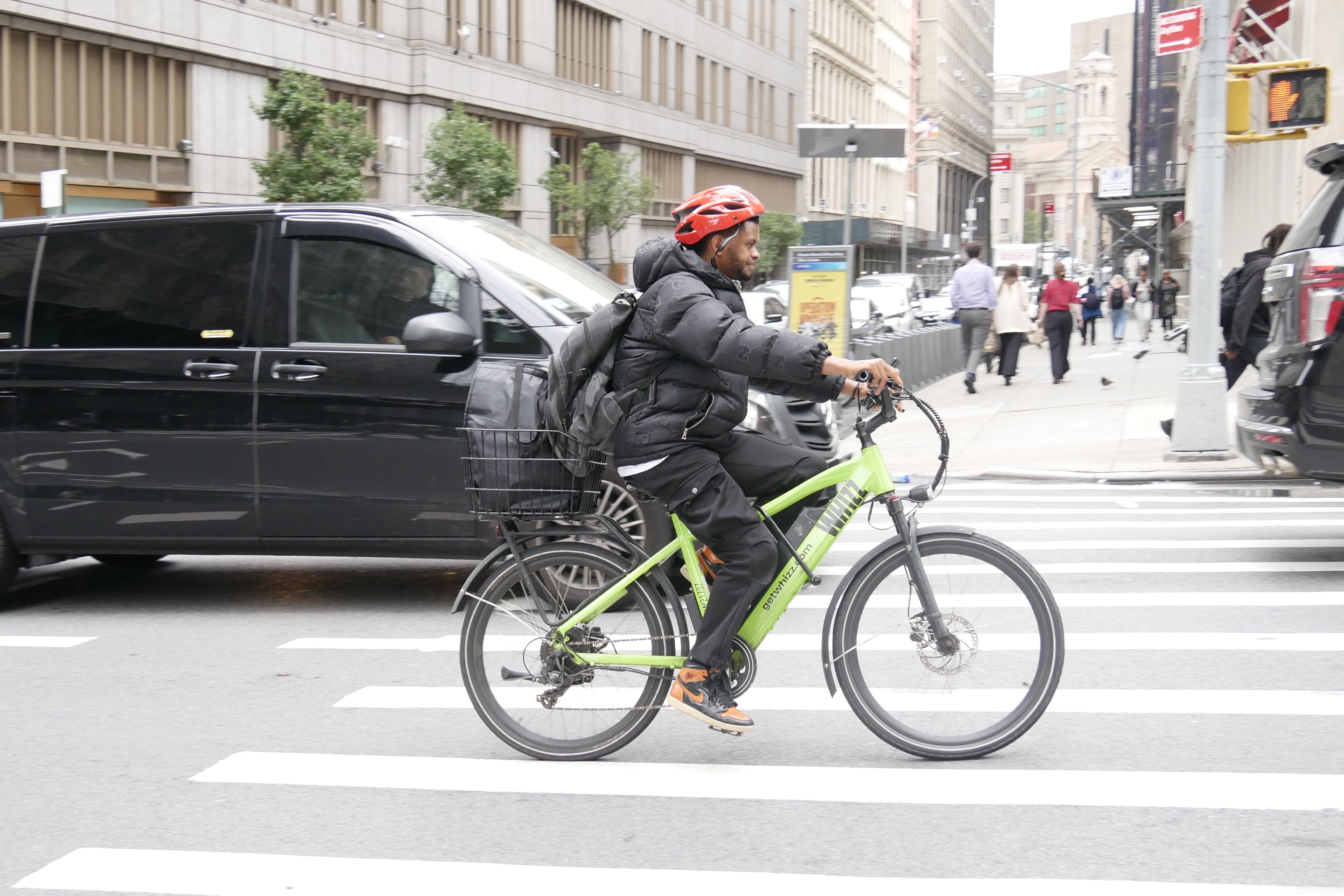
London officials closed the northern side of Trafalgar Square to traffic creating a vibrant new public space.
Mayor Michael Bloomberg and Senator Chuck Schumer argue that New York City risks losing its place of global pre-eminence in a Wall Street Journal editorial yesterday. The editorial is a response to growing conventional wisdom that says London is overtaking New York as the world's leading financial capitol. In the editorial, available online only to subscribers, Bloomberg and Schumer say that there is much the city can learn from its British counterpart.
One lesson not mentioned in the editorial, which reads mainly as a push to reform the Sarbanes-Oxley Act, is the role that long-term urban planning, quality of life improvements and agressive traffic reduction measures have played in London's ascent.
For London's Mayor Ken Livingstone, projects like congestion charging, banning cars from Trafalgar Square and the creation of the London Climate Change Agency, aren't just about altruistic environmentalism. "Ken's a very savvy marketer. He knows that these initiatives make London a more attractive place for big companies to set up shop and attract employees," an official at Transport for London told me.
Today's Guardian reports that macro environmental issues now inform everything that London's Mayor does:
Ken Livingstone, Mayor of London, is these days possessed of one great idea. Climate change, and how to avert it, consumes him. It now informs all his decisions on transport. It is top of his agenda for social housing and new building developments. He reads about it in his spare time. He talks about it to anyone who will bend an ear and he will travel to the ends of the earth if necessary to cut deals with other politicians, to steal the best ideas from other cities and to communicate with anyone the urgency and scale of the problem.
Though Livable Streets issues weren't mentioned in the Bloomberg-Schumer editorial, New York City's business community is increasingly aware of their importance. As Kathryn Wylde, president of the Partnership for New York City has said, "The gridlock on New York City's streets has become a brake on the city's economy. She warns, "It is going to be increasingly difficult for New York to market itself as a place where you can get the most done in the least period of time with the best workforce if we're not able to solve the congestion problem."
Meanwhile, Brooklyn Borough President Marty Markowitz, a possible 2009 Democratic mayoral candidate, is off to visit the World Travel Market expo in England to sell UK travel groups on package tours that include a trip to Brooklyn. Marty told the Daily News, "Tourism is one of Brooklyn's biggest and most vital growth sectors, and I'll do whatever it takes to show the world the beauty of our borough."
 There are a couple of things, of course, that Marty won't do to enhance the beauty of his borough. He won't support London-style traffic reduction measures. He won't stop parking his SUV and about a dozen other vehicles on the pedestrian plaza, technically park land, outside of historic Borough Hall. And he won't push the city, state and developer Forest City Enterprises to do smart, thoughtful, long-term planning around the massive "Atlantic Yards" project.
There are a couple of things, of course, that Marty won't do to enhance the beauty of his borough. He won't support London-style traffic reduction measures. He won't stop parking his SUV and about a dozen other vehicles on the pedestrian plaza, technically park land, outside of historic Borough Hall. And he won't push the city, state and developer Forest City Enterprises to do smart, thoughtful, long-term planning around the massive "Atlantic Yards" project.
Welcome to Brooklyn, Brits. Perhaps the traffic congestion will remind you of what it used to be like in London. Don't forget to look to your left when you step out into the street.





